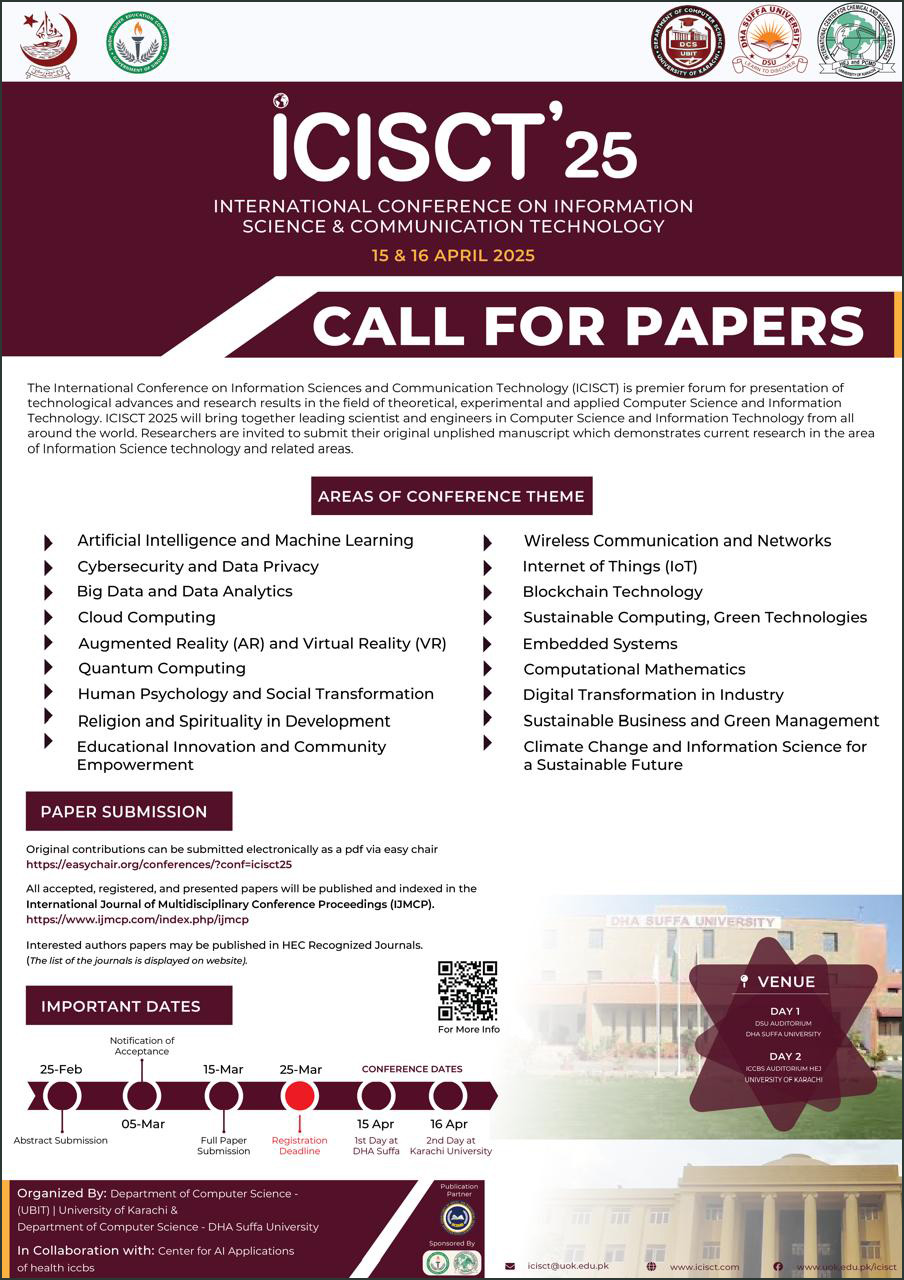Unveiling Perspectives: Exploring Student Perception on Artificial Intelligence in Academics in Rawalpindi, Pakistan
DOI:
https://doi.org/10.61503/cissmp.v3i2.161Keywords:
Integration, Revolutionize, Exploration, Synthesizing, Self-EfficacyAbstract
Artificial intelligence characterized as computing systems that perform tasks that humans do, such as learning, adapting, and synthesizing, as well as self-correcting and utilizing data for complex processing jobs. Integration of artificial intelligence into education has received much attention because it has the potential to revolutionize current approaches to teaching and learning this study has to explore student’s perception toward integration of Artificial intelligence tools in their academic experiences and also to explore the impact on their learning outcomes. For this study quantitative research approach has been used. A sample of 200 students selected from all the departments in the faculty of social sciences of Pir Mehr Ali Shah Arid Agriculture University Rawalpindi. Systematic sampling technique was used for data collection. In order to collect the data questionnaire was used. This research has been extracted from the M.Phil Dissertation. The study revealed that students who use artificial intelligence tools perform better on research work, examinations, assignments, presentations and overall coursework. As a result, artificial intelligence tools assist students in their learning processes and critical thinking. It develops their academic abilities, research work skills, academic grades, and self-efficacy. This study demonstrates that integrating artificial intelligence tools enhances students' academic performance, and self-efficacy. The results indicated that AI tools changed the way students learned and behaved academically.
Downloads
Downloads
Published
Issue
Section
License
Copyright (c) 2024 Muhammad Ali Zia, Hina Gul, Irfan Mehmood Janjua

This work is licensed under a Creative Commons Attribution-NonCommercial 4.0 International License.
Contemporary Issues in Social Sciences and Management Practices (CISSMP) licenses published works under a Creative Commons Attribution-NonCommercial (CC BY-NC) 4.0 license.









